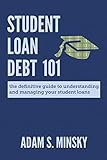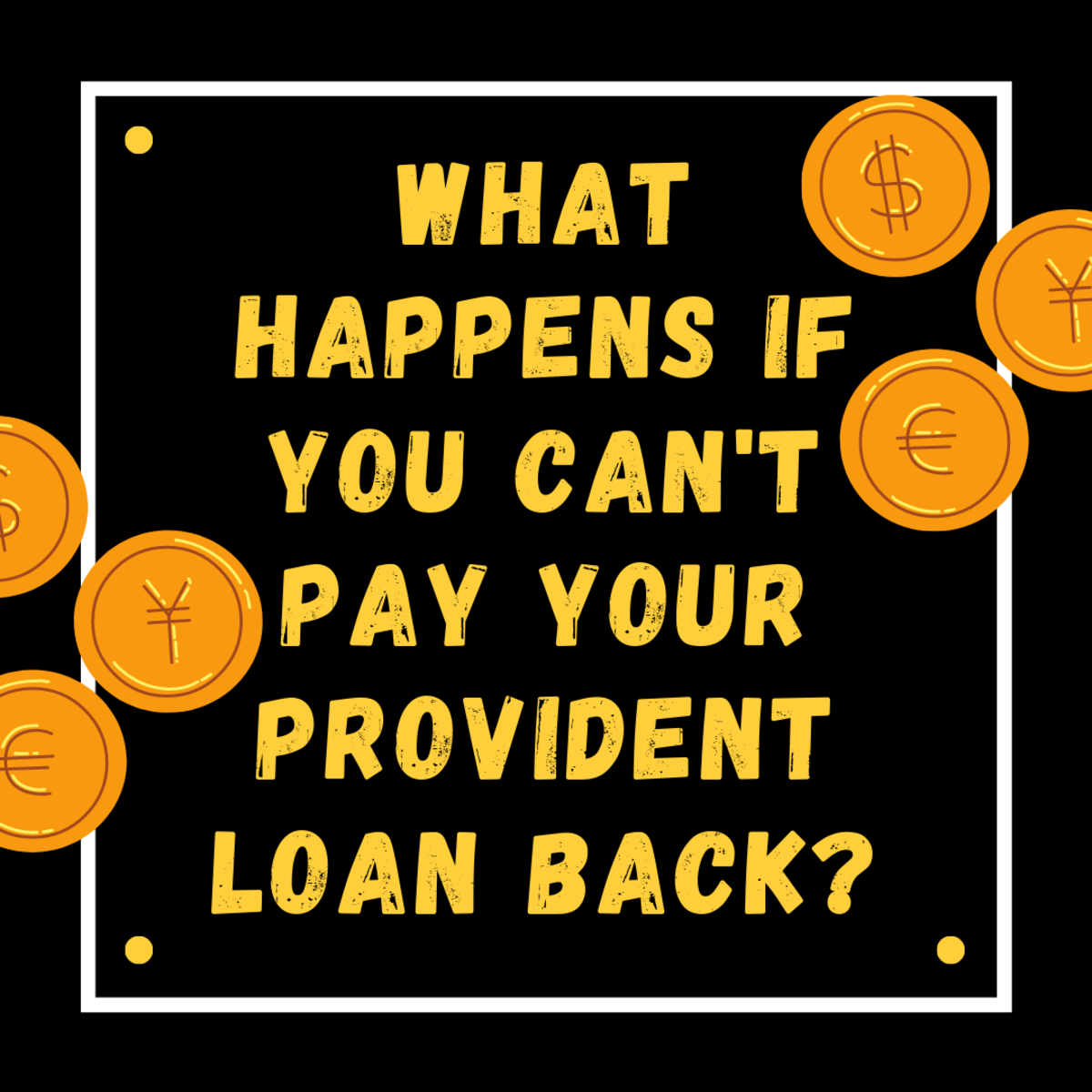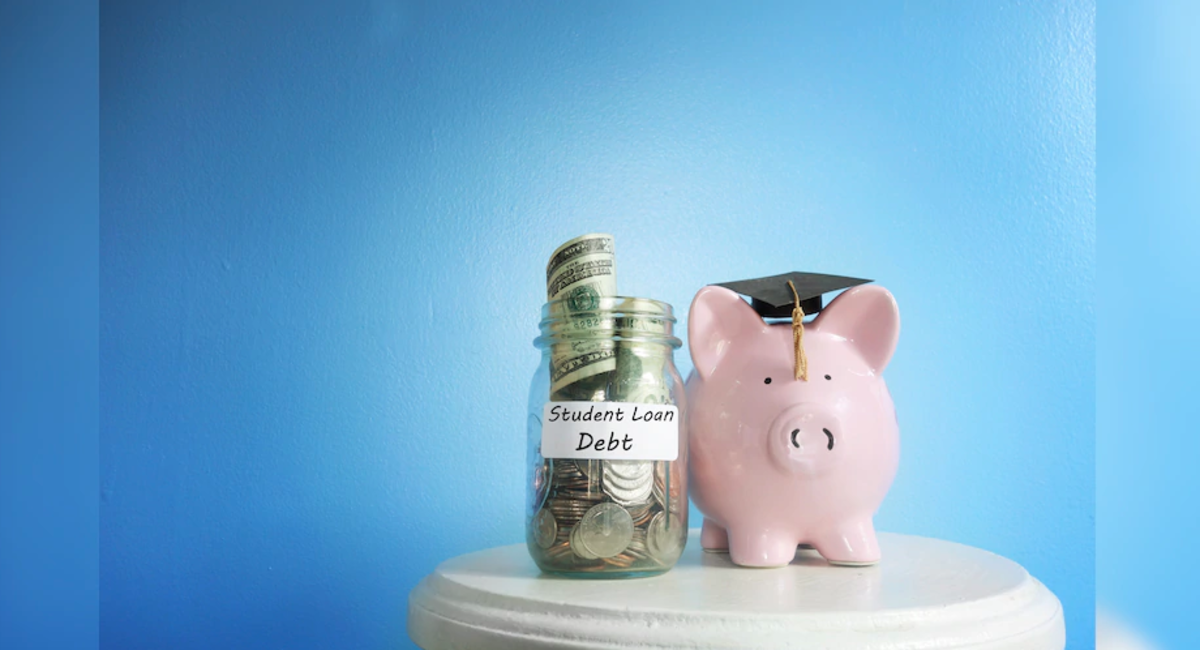Tips On Paying Back Student Loans
Tips on Paying Back Student Loans
We've all heard the expression...."Payback's a b*!!ch" and truer words were never spoken when it comes to paying back student loans.
Student loans can become a huge financial drain for graduates through no fault of their own. Student loans carry with them a huge liability because those loans have to be paid back no matter what. And these are serious numbers in terms of dollars!
However, let’s say that you have an unexpected illness crop up or you get laid off or fired from your job? What do you do about your student loans?
Worrying about paying back student loans can cause a lot of stress when life isn’t going the way it should be going anyway.
Let’s look at some strategies that can help students pay back their loans without dragging them into the depths of despair over their very indebtedness!

Paying Back Student Loans
With student loans, you do have grace periods that are built in. But a student who has graduated or has dropped his or her study load to less than half-time will have the clock start ticking on their repayment program if they borrowed through federally guaranteed loan programs.
For federal loans such as Stafford loans (Direct Loan Program) or FFEL loans (Federal Family Education Loan), six months after graduation, you will be expected to begin repayment.
Federal Perkins loans will require you to start repayment 9 months after the above criteria have been met.
PLUS loans begin the date that the loan is given out and payment is due within 60 days of the last payment given. However, a graduate student with a PLUS loan or a parent with a PLUS loan who is also a student can defer repayment if the borrower is enrolled at least half-time. If loans were issued after July 1, 2008, the borrower has an additional 6 months after enrollment has dropped to less than half-time to begin repayment. The bad news here is that the interest will continue to accrue.
Understanding Student Loans & Tips on Paying Them Back
Consistency counts. If at all possible, student loans should be paid on time and by regular payments. If that seems to be an issue, you can save money and avoid missing payments by having auto withdrawals through your bank.
Just have them set up an automatic transfer system every month and you’ll never be late again on your student loan payment! Also having automatic payments will help you save on your student loan. Most banks or lending institutions will shave off a quarter point on your interest rate so be sure and ask for this! It’s not much but it’s something!
Check out repayment plans and calculators at the federal student aid website for different ways of calculating your repayment schedule. Remember that student loans are just like a mortgage or a car loan and have to be paid back in full or you stand to be held in default on the loan.
Things change and crises occur sometimes in our financial forecast. If you get fired from a job or lose a job due to downsizing, etc. or you take a hit in your income, there are ways to minimize the sting.
The Department of Education has an income-contingency plan to cover occurrences such as these and you an request an alternate payment plan. While these plans will unfortunately add incredible amounts of interest to your loan because you have a longer time to pay back the loan, it is the only option for some students who find that they simply can’t afford to pay back the loan as agreed upon. Why? Because they were counting on their income increasing and not decreasing!
Contact the Department of Education for income-contingent repayment plans. Also be aware that loans existing for over 25 years can be forgiven in the amount owing but the downside there is that the amount that's erased is now added to your tax obligation. You have to pay taxes on the amount that was erased or forgiven.
Loan consolidation. You can always combine loans and pay one monthly payment on several loans. You then have a longer period of time to pay off the loans and you receive a new interest rate on the consolidative loan. There is a law in effect that the interest rate on these loans cannot exceed 8.25% but if you extend the life of your loan, of course over time, you’ll pay loads of interest. The upside is that you can substantially reduce your monthly repayment figure. In times of financial struggling, this is a solution that a lot of students have to resort to.
Tax obligations and solutions. Thankfully, student loan taxes (if you're eligible) are deductible in the interest that you pay on them per year. There are income limits to qualify for depending upon if you're single or a couple filing jointly, but check out the maximum that you can deduct from your income tax for the interest that you pay on your student loan.
Income Based Repayment. This is a help for many people who haven't gotten that better paying job they were hoping for after graduation. It is literally based on the amount of money you are making at the current time. Check out the video to learn more.
The final chapter for student loans. If all the above scenarios are still leaving you inundated by your student loans, you can ask for deferment of payments or something called forbearance. Even if you’ve quit a job, you can petition whoever holds your loan to suspend or defer loan payments. If this is a deferment on a subsidized Stafford loan, the interest on the loan will be paid by the US government during this suspended period of payment. If you return to school, you can also defer or suspend your payments with the same scenario or if you get fired. Of course, this is a temporary measure and you will eventually be required to begin paying back the loan.
What is forbearance? Forbearance is holding off payments of your student loan for up to 1 year. You will still have the interest clock ticking away adding to your loan but you are not considered to be skipping on your loan. The added benefit is that you'll avoid credit report hits that will blemish your credit history. Forbearance can also mean paying smaller payments or extending the length of repayment.
Discharge or cancellation of student loans. In some cases, under certain circumstances, student loans can be canceled or discharged and the student will not have to repay the loan. Read about the circumstances for discharge of student loans at the website below.
WHAT IF YOU DEFAULT ON YOUR STUDENT LOAN?
A student loan is a binding contract just like a mortgage or a contract to purchase a car. The people owed will take action against whoever holds the loan and is not making efforts to repay or restructure payment.
Some of the consequences:
- Legal action will occur and you will be sued
- Your credit rating with take a direct hit because all credit bureaus will be contacted. This may impact future borrowing power for things like homes, cars, etc. It can even impact trying to get a job
- Your wages can be garnished to pay the loans
- Tax refunds can and often are withheld to be applied to the loans that are outstanding until paid
- Late fees and collection costs will also be added to what you owe
Student Loan Help Tips
Did You Know About Student Loans?
Cancellation or deferment of student loans for teachers is available if you go into teaching in low-income or subject-matter shortage areas of teaching. Check for further details online. Stafford loans can be canceled or deferred; Perkins loans can be also as well as FFELs. Check the website below for more information.
Working in public service can get the balance of your loan forgiven after you’ve made 120 monthly payments that were on time. This applies to certain repayment plans after October 1, 2007. Requirements are that you have to be employed full-time in a public service job during the period of time when the qualifying payments were made. You have to be still working there when the cancellation is granted. The remaining outstanding balance of principal and accrued interest is the amount forgiven on eligible Direct Loans. The loans must not be in default, however. Again, check the website below at the Public Service Loan Forgiveness page. These include Stafford loans, PLUS loans and Federal consolidation loans.
Under these certain circumstances, your loans will be discharged (canceled) or reduced:
- You die (this isn't the best case scenario obviously)
- You become permanently and totally disabled and in some cases of illness
- Your school closed before you completed the program
- You work in certain designated public school service professions
- Your school owes your lender a refund or certifies that you didn’t have the ability to benefit from the coursework you enrolled for
- You
file for bankruptcy (but usually only if undue hardship can be proven in paying
back the loan) - you may still have to pay back the loan
Information on Student Loans
You can contact the US Department of Education’s National Student Loan Data System (NSLDS) to get full information on your federal loans. You can get information on the loan type, the amounts borrowed, principal and interest that are outstanding and the total amount of your loan. Go to www.nslds.ed.gov to check on the status of your loan.
You can also call the Federal Student Aid Information Center at 1-800-433-3243 for assistance in figuring out your loan and the mechanics of its repayment. For questions about repaying FFEL, Direct Stafford or Perkins loans, contact your loan service provider (contact the above number if you don't know who that is). If you have a Perkins loan, you should contact the school that issued the loan.
At the website below, you can also check current interest rates or find out more details on the type of student loan that you have along with possible options such as consolidation, deferment or forbearance.
Check out the student aid government website to answer all your student loan repayment questions.
Paying off student loans is a necessary part of the educational process but sometimes one that seems impossible after the fact.
Remember that they are considered binding legal contracts. Failing to pay won’t take you far in the job market nor will it help your credit by defaulting on them.
If you’re having trouble repaying your student loans or if you have questions at all, contact professionals at the above websites and get the help you need to work it out and keep yourself financially in good standing.
More Tips on Paying Back Student Loan
- Fixed Rate Private Student Loan Consolidation - Conv...
If you are a recent graduate or about to finish college, start preparing for a fixed rate private student loan consolidation because it can help save you some money while simplifying how you can repay your... - All Student Loan Consolidation Companies Are NOT Cre...
Now that you've completed college, you probably have some pretty hefty monthly student loan payments. Good news: Student Loan Consolidation Companies exist to help graduates ease the burden of paying all of... - 5 Ways to Pay Off Student Loans Debt Fast For Gradua...
The National Center for Education Statistics (NCES) has recently revealed that more than 50% of recent college graduate have taken one or more student loans, and the average student loan debt is $10000... - Student Loan Repayment Tips for the Life of Your Loa...
It really is typically claimed how the most successful credit debt management strategy is to become debt-free. But, in purchase to cover for your college training, you may perhaps need to acquire out college... - Student Loan Forgiveness
Student loan forgiveness is not a myth, it is true that you can write off your study loans by taking part in numerous programs available today. However, such student loan forgiveness opportunities are seldom... - Alternative Student Loans Repayment Options
Student loans have become the best refuge of almost all students and parents to achieve a college degree. You can borrow up to your cost of attendance as certified by your school through alternative student... - The Best Fixed Rate Student Loans
Find a cheap fixed rate student loan today. A mountain of answers, information and resources for anyone interested in kick-starting a college career without sweating too much about financial worries. - Help Paying Back Student Loans
Its a fact that about 75% of people in the late twenties are still repaying student loans. Many of these are consistently late with payments. Some even have to keep deferring loan payments, all the while... - Student Loan Repayment Tips for the Life of Your Loa...
It is often said that the most effective debt management strategy is to be debt-free. But, in order to pay for your college education, you may need to take out student loans. Student loans are...









